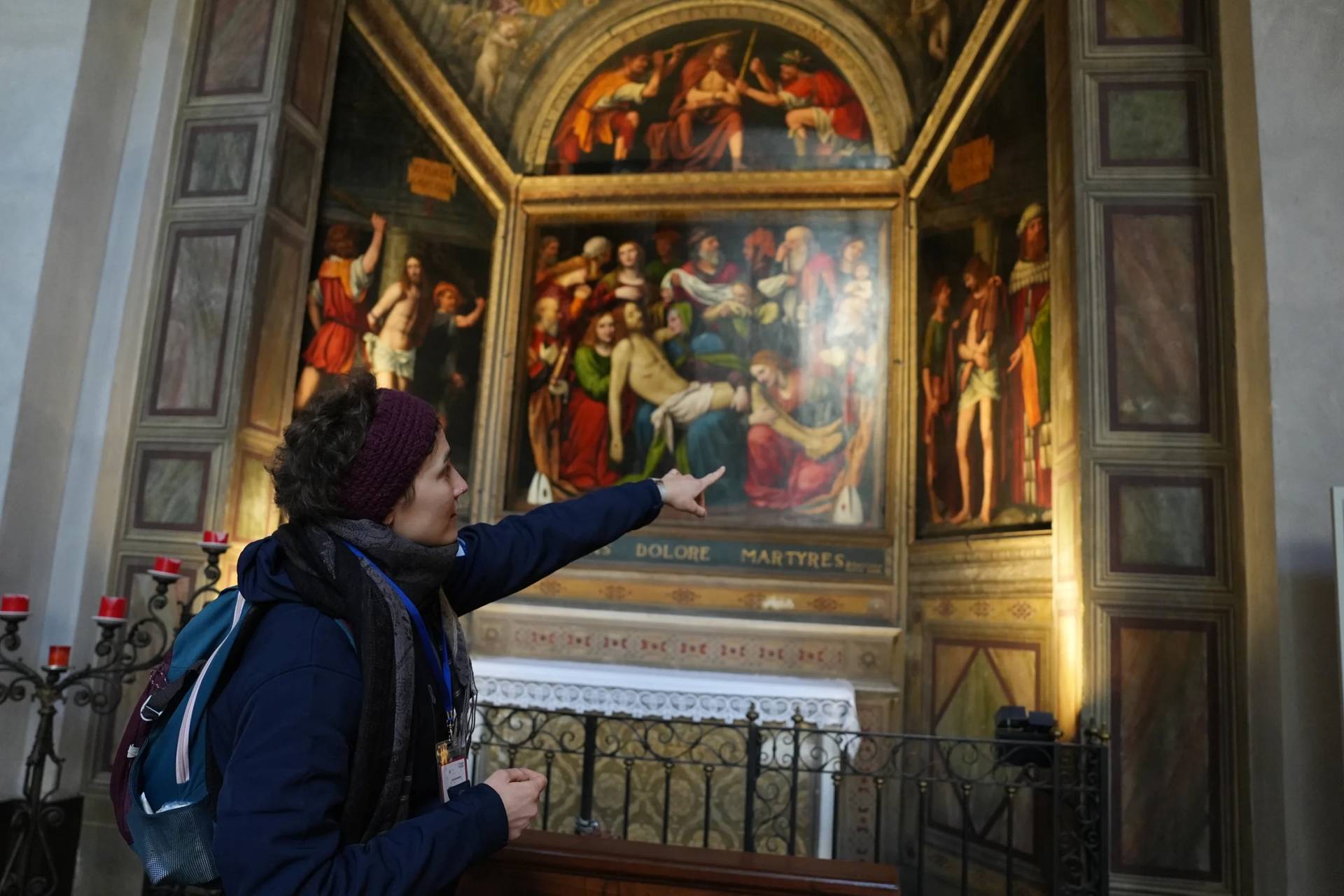ROME – Known as the “pope’s hospital,” the Vatican-owned Pediatric Hospital Bambino Gesù celebrated its 150th anniversary on Tuesday paying homage to its Catholic and Italian heritage and making a commitment to treat all children, including those with rare diseases.
“The Church will never stop caring for the sick,” said Italian Cardinal Pietro Parolin, the Vatican’s Secretary of State, during his remarks at the event that took place in Rome’s Auditorium in Saint Paul Outside the Walls Basilica on March 19.
“I am thinking especially of the ‘new health poverties’: Chronic diseases and rare maladies, mental health issues, the old and the marginalized. The last will always be protected, there will always be families to engage in the healing efforts, networks must always be created so that no one is left alone,” he added.
The event saw the participation of high-ranking representatives of the Italian state and the Holy See. It also marked the turning of a new page for the hospital, away from the financial scandals that have implicated the institution in the past and into a future focusing on providing the best care for children.
Bambino Gesù made global headlines in 2017 after it was discovered hospital funds were being funneled to refurbish the apartment of Italian Cardinal Tarcisio Bertone, the former Vatican Secretary of State.
The scandal resulted in the conviction of two Italian laymen, Giuseppe Profiti and Massimo Spina, both former members of a foundation that oversees the famed children’s hospital, by a Vatican court.
Since then, and under the leadership of President Mariella Enoc, the hospital has grabbed global attention for different reasons: Its aid in foreign countries, health care excellency and for offering treatment to children who suffer from degenerative or unknown diseases. This included offering to treat British children Charlie Gard and Alfie Evans, although the UK government prevented them from being transferred to Italy.
While promising to be “very prudent with the balance sheets,” Enoc said that Bambino Gesù’s commitment to children of rare maladies “is born from the research made in the past 150 years and in the future.”
“The love for children must translate into deeds,” she added.
Enoc, who calls herself “the grandma of the Bambino Gesù,” has encouraged the hospital to care for children with rare maladies. It works with around 700 researchers in Rome, and has helped discover 16 previously undiagnosed diseases.
“We will need all of you: At the hospital, institutions, all those who help us to be able to do this, and most certainly we will need the support of the Holy See,” Enoc said, calling the caring and raising of children “a collective work” that engages the entire community.
“The future is the story of children,” she added.
As the left and right-wing populist coalition leading Italy applies anti-immigrant policies, Bambino Gesù has stood out for its efforts to welcome families of foreigners seeking the best possible care for their children. Up to 15 percent of patients at the hospital come from other countries and the Bambino Gesù has enacted numerous collaborations in other countries.
The hospital currently provides healthcare for children in Cambodia, Jordan, Syria, India, Tanzania, Georgia, Russia, China, Ethiopia and the Central African Republic – where it recently opened a hospital branch. It has also embraced Pope Francis’s call to reach out to the peripheries by providing mobile pediatric care to the poorest neighborhoods in Rome.
The local and global dimension of the hospital was celebrated at the event, with Parolin symbolizing the patronage of the Holy See and Italian President Sergio Mattarella praising its profound influence on the Roman and Italian community.
Born in 1869 in a small room near the Tiber river, with only four hospital beds under the care of the Daughters of Charity of Saint Vincent De Paul, the Bambino Gesù has grown into a structure with 607 beds and capable of caring for almost 30,000 patients a year.
“If it became what it is we owe it to the Holy See, which kept it and allowed it to grow,” said Virginia Raggi at the event, calling the Vatican hospital “the symbol of a city that welcomes and makes people feel at home.”
The mayor promised to launch two initiatives with the hospital that would create an extra pavilion on the Janiculum hill where Bambino Gesù is situated and create a center for the treatment of tumors and transplants in the Pamphili Villa in Rome.
Parolin recognized that Italy’s health care system is “the natural habitat” for Bambino Gesù, but added that “the hospital is also an expression of the Catholic Church, whose horizon is – by definition – universal.”
The Vatican’s number two official praised the “prophetic vision of lay people,” which contributed to making the hospital what it is today, and its commitment to the peripheries of society, at both the local and global level.
“It’s a witness to how for the Bambino Gesù there are no walls or borders, nor races or religious beliefs that separate from charity,” Parolin said.
“We wish to continue in the present, with passion, our great endeavor, that of caring for sick children, including those who don’t have the opportunity in their countries, as a sign of the charity of Jesus Christ and his Church, and to open ourselves to embrace the future before us with hope,” he added.













